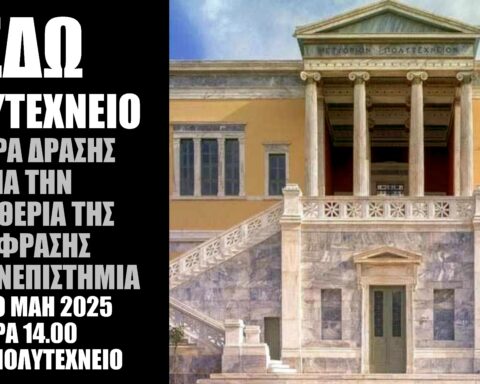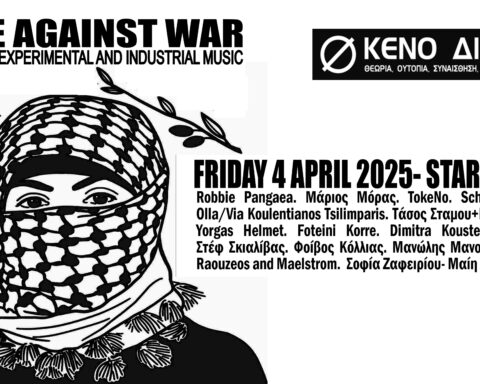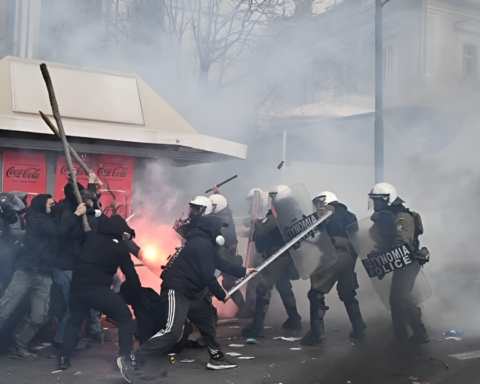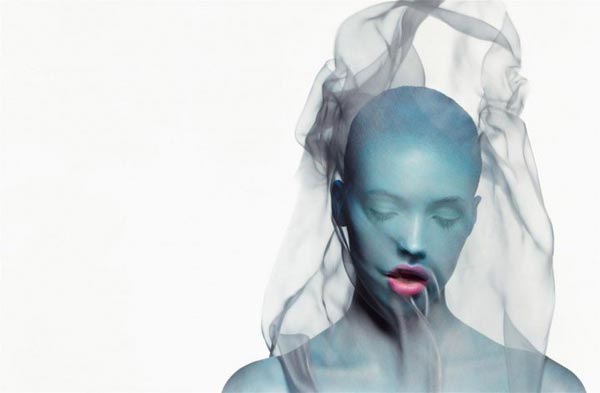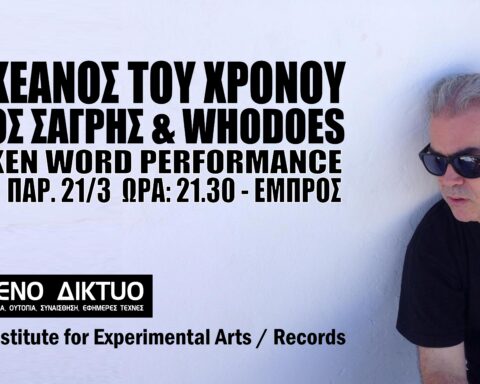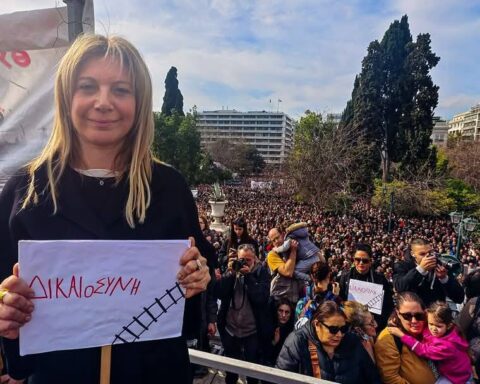Oh, my Trump! On the figures of the global civil conflict (Announcement in English / intro in Greek) While protests and riots may not be unheard-of phenomena in the history of presidential inaugurations in the US, there is something distinct in the mass anti-Trump protests and the violent clashes that accompanied them (no matter how small the latter may have been).
Η εκλογή του Ντόναλντ Τραμπ δημιούργησε σε παγκόσμιο επίπεδο ένα φάσμα αισθημάτων: μούδιασμα, οργή, φόβο, ανασφάλεια. Με τον έναν ή τον άλλο τρόπο, υπάρχει μία γενικευμένη αίσθηση ότι συνέβη κάτι το οποίο μπορεί να έχει πολύ άσχημες επιπτώσεις για το μέλλον του κόσμου. Την ίδια στιγμή, η ορκωμοσία και οι πρώτες μέρες διακυβέρνησης του νέου προέδρου των ΗΠΑ συνοδεύονται από σημαντικές αντιδράσεις, τόσο στο επίπεδο των επίσημων θεσμών όσο και σε αυτό του δρόμου. Χωρίς καμία υποτίμηση του συναισθηματικού επιπέδου εμπλοκής με τα γεγονότα είναι απαραίτητο να επιχειρηθεί μία θεωρητική κατανόηση όλων αυτών των συμβάντων – της εκλογής του Τραμπ και των αντιδράσεων ενάντια σε αυτή – στην ενότητα τους. Μόνο έτσι μπορούμε, αφενός, να εκτιμήσουμε τους κινδύνους και τις δυνατότητες που ελλοχεύουν στην παρούσα ιστορική συγκυρία και, αφετέρου, να συμμετέχουμε θετικά στον διεθνής κλίμακας αγώνα που διεξάγεται. Το κείμενο που ακολουθεί είναι μία μικρή συμβολή προς αυτήν την κατεύθυνση.
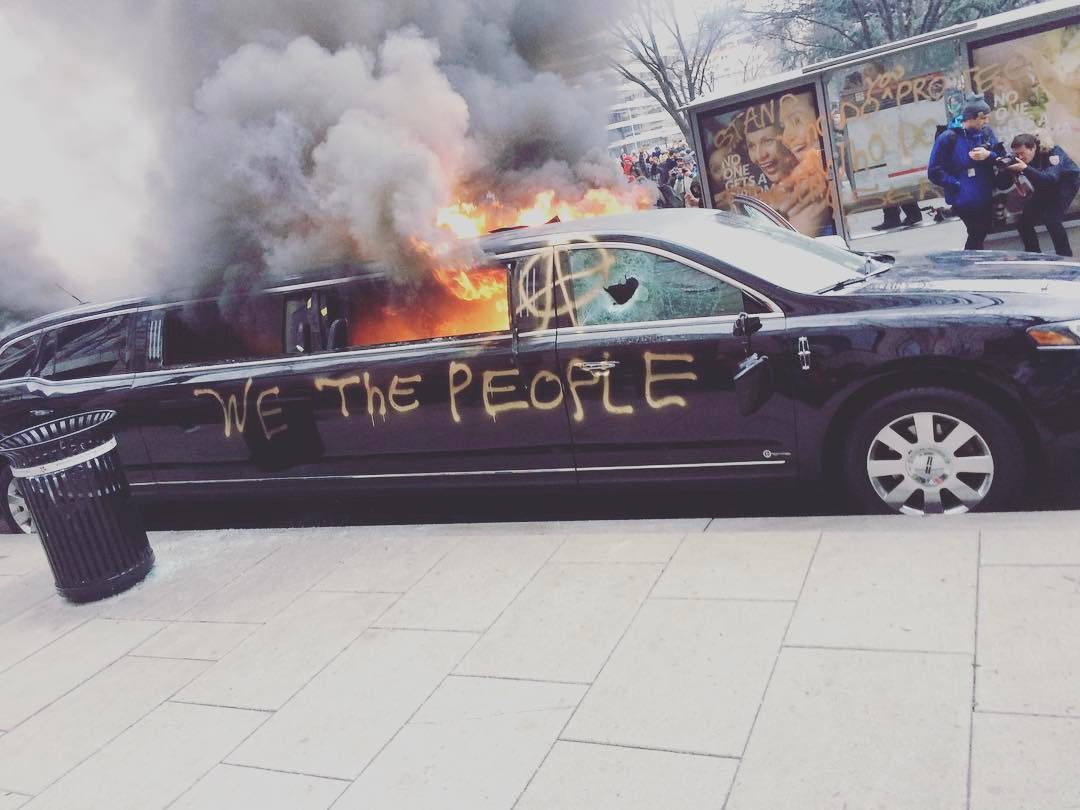
“Oh, my Trump! On the figures of the global civil conflict”
by Void Network
There is no reason goodness cannot prevail over evil, so long as the angels are organized as the mafia
– KurtVonnegut, Cat’sCradle
While protests and riots may not be unheard-of phenomena in the history of presidential inaugurations in the US, there is something distinct in the mass anti-Trump protests and the violent clashes that accompanied them (no matter how small the latter may have been). Surely, Trump’s personality has played its part, but there is much more at stake in the ongoing protests than the reaction to a person who deliberately chose to be vulgar and to provoke to get elected. Indeed, it is in thevery fact of the election of a person like Trump – which proves the success of his electoral campaign – that we get a glimpse of the significance of the anti-Trump protests. To put it briefly, the protests are not a response to who Trump is, but an expression of the division that Trump represents.
In the same way that Trump’s personality is insufficient as a cause, the importance of the protests cannot also be measured simply by analyzing the reasons motivating the mobilizations, although it is evident that no serious analysis can ignore this factor. Even if we add upthe individual intensions of all those who go to the streets to declare that Trump is “not my president”, or more recently to protest against his decrees, we would still not come up with the“message” or “meaning” of the demonstrations.Rather,it would be theirheterogeneity that would shine through, which, perhaps, may not be so easy to reconcile. The fact that some tendencies are dominant and others are marginal hardly changes this verdict.
Where is the significance of the anti-Trump protests if not (not primarily at least)in Madonna’s insults, in Charlize Theron’s tears,in Michael Moore’s self-righteous indignation or in the windows smashed by the Black Block? It is in the event, that is always more than the sum of its parts: in the fact that mass protests took place (and continue to occur) as a reaction to the election of the president of the United States of America.
If we conceive of democracy, or more specifically, of modern democracy, simply as the form of capitalist rule, as some Marxists do, or as a façade of domination, as some anarchists do, we will have missed something fundamental about it (it is no accident that Marxist and anarchist critiques, for all their merits, have a difficulty coming to terms with the capacity of modern democratic systems to absorb the tremors caused by crisis and unrest). The definition of democracy as “government by consent”, while very partial and inadequate if taken alone, grasps at least one essential element of modern democracies (perhaps of every type of democracy worthy of the name, but this is not an issue to enter in this article). Modern democracy has evolved as a pragmatic system of mediating social antagonisms and managing difference in a consensual way. For sure, the archives of liberal democracies, even in countries with a long democratic tradition like the United States, are littered with repression, violence, exclusion, discrimination, marginalization etc. Still, wherever functional representative democracies have been established, institutional inroads have been created which, for considerable periods of time and to a sufficient degree for the functionality of the system to be ensured, manage to channel collective interests and desires in non-violentforms of expression.Indeed, from a certain functional perspective, whether this aspect is“ideology” or “fact” is secondary; what matters is its presence which, even in its failures, allows democratic systems to function.
Associated to this consensual mediation of difference, although not identical to it, is another aspect of modern democracy, the generation through elections of legitimacy, or to be more precise of legitimate power and government. Once again, critiques of elections that concern the extent which they truly represent the will of the people, or their failure and inability to act as means of genuine democratic accountability, are beside the point (something of course that does not strip these critiques ofthevalue of being true).Through multiparty elections, modern democracies not only integrate and recognize political opposition, in a way that civil conflict is suspended; they also make representation “representative” and, thus,legitimate. In this sense, acceptance of the electoral process and of the majority principle on which it rests is essential to the stability of a democratic regime. This dimension of democracy as a process that generates legitimate government is what attaches it to the modern state, or to put it a bit more technically, this dimension concerns democracy as a state form (“democracy-state”).
These fundamental aspects of modern democracy are precisely what the anti-Trump protests challenge. To declare that Trump “is not my president”,although he has come to office through free elections, is much more than the expression of a personal sentiment about Trump (no matter how much he is resented as an individual); it is to subvert one of the essential principles and aspects of modern democracies. At the level of analysis that we are concerned, it is not crucial if this is a conscious act by those who protest, though, of course, it makes a huge difference if such subversion becomes a political agenda with hegemonic aspirations. In the case at hand, it is more than likely that most protesters do not want to challenge the American democratic state, much less democracy as a form of government or regime. They instead want to defend it from what they perceive to be a threat to it, Trump. On the other hand,it is no accident that Scarlet Johansson pleaded with Trump to prove worthy of his title so she can recognize him as “her president”. Neither is it out of idiosyncrasy that Moore felt compelled to stress that the protesters are the “real majority”. Of course, in this case the implication is that the electoral system may not be adequate to express the majority, which would simply imply the need for a better electoral system. In all cases, however, a certain anxiety is evident to defend the democratic credentials of the protests. Part consciously, part unconsciously, the act of challenging the President the day (after) he was inaugurated is taken for what it is: a subversion of an essential aspect of modern democracy. It is this subversive attitude that becomes manifest also in the pledge to become “ungovernable” that seems to be gaining ground.
One may question here whether the assertion above does not risk vindicating the supporters of Trump, who depict those who refuse to acknowledge him as antidemocratic elitists or, in the case of anarchists, antidemocratic vandals. The misgivings are legitimate. Having stated the thesis in a strong manner, it is imperative to modify it. After all, it would be unwise, both from a theoretical and from a political perspective, to ignore the widespread feeling among protesters that they defend democracy or, indeed, that they practice a more genuine democracy, a “real democracy” as the slogan of the squares-movement had it. If the protests and the calls to become ungovernable constitute a practical challenge to the capacity of democratic elections to generate legitimate government, they bring to the fore another dimension, which is attached to democracy not as a state form but as a movement from below: the critical capacity to generate rupture and dissent, what Jacque Rancièrehas called “dissensus”.[1] Democracy, in this historic configuration of the concept, expresses the social division that inheres in society, and more precisely, for class-society, the tensions and antagonisms that cannot be totalized in a harmonious order of representation, even a nominally democratic one.
From this angle, the protests are instances of a typical phenomenon, given that democracy as a movement of dissent is a frequent feature of modern societies. And yet, there is a crucial element that differentiates the anti-Trump protests and resistance movements from other recent democratic movements, like “Occupy!” and its European counterparts, the Indignados and the Aganaktismenoi. The ongoing protests and resistance respond, but also are a continuation, of the “dissensus” expressed already in the elections. That is to say, the pragmatic dimension of democracy, as a mediating principle of social difference,has been practically questioned in Trump’s victory. For sure, the latter at the same time manifests the power of modern democracy to absorb dissent and to promise change. But it must not be underestimated that Trump was elected by making the divisions that cut through American society into a programmatic principle. This is,ultimately, what Trump’s victory represents: a division and a tension that, as a result of the ongoing crisis, have reached sufficient intensity to assume the form of a political agenda capable of winning elections in the world’s (waning) superpower.
Conceptualizing Trump’s election in this manner also makes possible its contextualization. Staggering as it is for taking place in the “belly of the beast”, the United States of America, Trump’s victory is representative of a wider trend, of a crisis of political representation that spreads over many countries of the capitalist world-system, especially at its “center” (or at any rate its more developed parts). This crisis, in turn, is the current form that the more general crisis of capitalist relations has assumed, the previous expression being the wave of international struggles that reached a climax in the years 2010-2012.
For at least two decades, representative democracies in the more advanced capitalist states were functioning under a peculiar single-party system: no matter which was the specific electoral system, governmental power was shared and exchanged between two political parties that agreed on the essential direction that societies had to take, as epitomized in the system of neoliberalism, financialization and globalization. In the United States this role was played by the two parties which composed its traditional political class, while in Europe the two traditional political familiesof social-democracy andthe center-right (in its various subtypes, Christian-democracy, British conservatism etc.) played an equivalent role. From one election to the next, including the various referendums that have taken place recently, the waning influence of these parties and the correlative crisis of representation becomes manifest. For sure, in the United States, due to its deeply consolidated two-party system, the crisis could not take the form of a collapse of the Republicans and the Democrats but of the ascendancy within these two parties of underdogs coming from their margins, like Bernie Sanders and, of course, Trump. No matter its specific manifestations in each different state, the overall trend is clear and while, so far, it has not acquired the character of a crisis of the democratic state, the argument that voting as an act increasingly becomes an expression of crisis and a reaction to the present political system may prove to be all the more salient.
Along with the crisis of political representation, Trumps victory expresses the parallel phenomenon of the rise of far-right politics. Usually, the latter is designated under the banner of “populism”, a term that is deployed with the explicit intention to conceptualize together the far-right parties with leftwing powers that also arose to prominence because of the crisis, like Podemos and Syriza (until of course the latter assumed office, now Syriza belongs to the “responsible” political powers). The dominant use of the term and its political functions have severely limited the analytical value that populism once may have had. Yet, it may still be preferable than seeing Trump and his European equivalents in France, Austria etc. as a triumph of fascism. Not that they lack fascist elements. But these are tendencies that have still not taken the shape of an identifiable fascist politics, although this is one of the historical possibilities that open in front of us.
No matter how we call it, what is the essence of this ascendancy of the far-right and its “fascistic populism”? Judith Butler, in the article cited previously, correctly points out that there may not be a single reason, and that those who believe who have the answer, may be deluding themselves. For one, the victory of Trump does not mean that millions of Americans turned racist or even fascist. On the other hand, to identify in Trump simply a symptom of the economic crisis is to downplay that rightwing populism (or however else we wish to call it) is not simply an expression of the crisis but one of its political mediations. In simple words, American or French workers who vote for Trump and Marine Le Pen may not have become irremediably racist and fascist but they still invest in an explicitly nationalist and xenophobic vision, which entails a very aggressive policy towards the multinational proletariat of today’s world. This, to be sure, certainly does not justify the high-frowned and self-righteous dismissal that some leftists and anarchists commit. Still, from an internationalist, leftwing perspective, it can hardly be an occasion for jubilation.
What has historically defined leftwing politics of any kind, from the more radical to the more moderate, is that it promoted changes which were thought to be progressive (and perhaps part of the reason for the crisis that the Left finds itself is its failure to move beyond struggles of preservation, or indeed of restoration). In contrast, what distinguishes (far)right populism is that its critique of the elite, of corruption, etc.is not attached to a politics of transformation but a politics of restoration. That is to say, Trump and his likes do not promise to change the capitalist system, but to give to the present order it’s just, true, form. The fact that this form is identified with national sovereignty and glory gives to new far-right politics its full color: Trump’s version of isolationism is just one type of the many neo-archaisms that are in vogue, another example being of course the rise of ISIS (and with the “neo” being as crucial as the “archaic”, since we are concerned with truly [post]modern phenomena). In the face of a crisis which affects all aspects of their lives – their material wellbeing, their identity, their psychic balance – thousands of people invest on the restoration of familiar figures from the past. It is this essentially conservative psychosocial state that makes them receptive to the deeply reactionary rhetoric and political agenda of people like Trump.
It is on such a level of an economy of desire that we may also understand the forms that political antagonism assume nowadays and of the division that Trump stands for and aggravates. Those who oppose Trump, on the level of a mobilization from below, are the most forward looking and dynamic groups, who invest on progress, mobility and are ready to embrace change (at least to a certain degree). Not accidentally, most of them belong to the new middle class, which embodies all these qualities: educated and skilled, open minded in terms of social norms and human rights, mobile etc. To be sure, we most certainly do not deal with a unitary group, whether sociologically, politically, or ideologically. Some of the protesters are affluent and react to Trump mainly for identity issues, others have been hard pressed by the crisis, others belong to the youth who feels a lack of prospect, differences which can be traced also in the diverse political agendas and levels of radicalism. The picture becomes even more complicated when we broaden our scope to include in the anti-Trump camp members of the political and economic elite, who are fearful of the adverse economic consequences that Trump’s political agenda may have. Thus, parts of the progressive middle-class found themselves making a common cause – the election of Hilary Clinton – with parts of the political and economic establishment, whose essential aim and desire is to conserve the current neoliberal structures of governmentality and accumulation.
The substantial inference here is that the blocs which form political antagonism currently are not stable. They are fluid assemblages which may easily decompose and reassemble in a different configuration. It is certainly not wild imagination to conceive that parts of the working class who voted Trump could be drawn to an alternative left radical politics, just like it is far from being inconceivable to expect that an upsurge of radicalization and political instability could make parts of the middle-class who now oppose Trump to conceive him as the lesser evil and as a guarantee of stability. In this context, we cannot but note the absence, as a collective force, from the anti-Trump protests of the marginalized proletariat which has recently revolted in the ghettos of US. This social group cannot be accommodated in the liberal progressivism that stars of Hollywood embody, other than as an object of sympathy and welfare, instead of a subject of change. How could it be otherwise, given that its main modality of struggle is the riot,[2]which is almost by definition excluded from the liberal catalogue of legitimate political action?[3]
If we add all the pieces together: of the various (and antagonistic to each other) neo-archaisms that promote change through the aggressive restorationof an idealized past; of the movements that appear and disappear only to reappear again, in their struggle for a better future; of the riots that continue to erupt from one place to the other; of wars that, along with displacing millions of people, form an explosive global geopolitical configuration; of the new economic crisis that is lurking behind every new “bubble”; of the ever-growing inequality; all these make for a very volatile situation. It does not make much sense to evoke some unproblematic universal figure as a remedy to this extensive fragmentation, since the latter does not come in spite but because of theone only truly actualized universality, that of capital. To be sure,the fluid nature of political antagonismdoes not also imply political relativism; the antagonisms, the hopes, the anxieties, the fantasies of today continue to be haunted by familiar, age-oldspecters: justice, freedom,democracy, equality, popular power. Rather, however, than being a struggle for the realizationofperennial ideals, the ongoing globalcivil conflict is a struggle over their content.
In this context, Trump’s election is certainly a reason to worry. Not only he deploys notions like popular power in a way that drives them from their emancipatory content and potential; healso expresses and represents the truly fascist potential of turning division into the principle of an authoritarian and racist totality. For all that, we are not quite yet at the doorstep of doom. The recent elections are also the expression of a potential that is reflected negatively in the figure of Trump. It is this potential that becomes manifest in the streets, in the demonstrations, in becoming-ungovernable, in the little graffito of the torched black limo: “we the people”.
[1]J. Rancière, Dissensus: On Politics and Aesthetics, trans. S. Corcoran, London and New York: Continuum, 2010.
[2] J. Clover, Riot. Strike. Riot: The New Era of Uprisings, London and New York: Verso, 2016.
[3] Sadly, for the most part, neither the more radical political currents fare any better on this score, although they are more ready to recognize subaltern riots in a positive manner. Hard as it may be, the establishment of political forms, infrastructures and processes that can embrace the marginalized proletariat and its forms of struggle remains a crucial stake that the current conjuncture posits. For all its shortcomings, the anarchist movement in Greece provides here an interesting and promising experience.
text written by George Sotiropoulos from Void Network / athens group
VOID NETWORK [Theory, Utopia, Empathy, Ephemeral Arts] https://voidnetwork.gr
